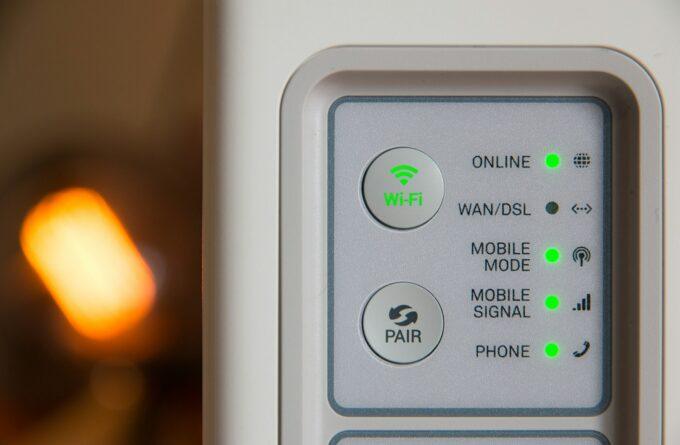In 2025, not having a decent internet connection is not an option for almost everyone—including pensioners.
Whether you’re doing internet banking, streaming your favourite TV shows, or voice calling with loved ones, reliable internet is a must. But for many pensioners, the budget is tight and there isn’t much wiggle room.
However, there are many good, cheap broadband options for pensioners—you just need to know where to find them. We’ve done the legwork, and in this article, we’ll share some of the best deals to stretch your pension as far as possible, with some options starting from as little as £12.50.
So, if you’re looking for the best cheap broadband deals for pensioners, keep reading!
Social Tariffs are a Game Changer
Something many pensioners may not know about is social tariffs. This is a game-changer for pensioners looking for a good deal in the broadband space.
These are special broadband deals that providers must offer to certain qualifying UK citizens, including those on Pension Credit, Universal Credit, or another qualifying benefit.
The end result is that you could literally save hundreds of pounds per year in broadband costs. A handy bonus is that most of them come with no exit fees or long-term contracts, making them perfect for pensioners who want value for money and flexibility.
The Best Pensioner-Friendly Broadband Options
Let’s delve into some cheap broadband options that are specifically tailored towards pensioners.
Virgin Media Essential Broadband: Great Budget Option
For just £12.50 per month, this offering from Virgin Media is great for budget-conscious pensioners. The speed is 15 Mbps, which is fine for basic browsing, emails, and even video calls. So, if your internet use is somewhat limited and your budget is tight, this is a great option.
If you need more speed and can stretch your budget a little, consider the Essential Plus package, which gives you 54 Mbps for £20 a month.
This offering from Virgin Media also has a 30-day rolling contract and no exit fee (as long as you are still receiving pension benefits), so it offers the added benefit of flexibility.
Lastly, for a £10 setup fee, you can get their Flex TV streaming services if you’d like.
BT Home Essentials: Broadband Deal With a Landline
If you still prefer a proper home telephone, you’ll want to check out this offering from BT. Pricing starts at £15 per month for a 36 Mbps broadband connection. If you want unlimited phone calls, the offering is £20 per month.
This is a great deal, considering many of BT’s standard broadband packages cost more.
It’s worth noting that there is a 12-month contract, but no exit fee, so you can leave without paying any penalty. Moreover, your contract price is fixed for 12 months, so you won’t get any nasty price surprises.
Lastly, if you’re already a BT customer, it’s super simple to switch over to this package.
Community Fibre Essential: Great for London Residents
If you’re a London resident, you’ll want to take a close look at this offering. At £12.50 per month, it’s the same price as Virgin’s offering, but you get a broadband speed of 35 Mbps. Also, it’s proper fibre broadband—not those old copper lines. This means you get more stable speeds and no need for a separate line for phone rental.
What’s interesting is they don’t actually check if you’re on pension benefits—as long as your area is covered, you qualify to join as a new client.
Vodafone Essentials: Speed on a Budget
If you’re a heavy internet user or have several people using the internet at once, this may be your best option. At £20 per month, it is a little more expensive than some of the other offerings, but you get a speed of up to 73 Mbps—which is plenty fast, even for demanding internet usage.
With no setup costs or exit fees and the promise that the price won’t increase mid-contract, it’s easy to see why this offering won the Best Social Tariff Award in 2024.
NOW Broadband Basics: When Flexibility Matters
NOW, which is owned by Sky, is the perfect package if flexibility is your primary concern.
It’s a broadband offering on a rolling monthly contract. This flexibility costs slightly more—£20 for 36 Mbps—but if you’re unsure about your living arrangements or uncertain you want to commit, paying slightly more might make sense.
What if You Don’t Qualify for Social Tariffs?
If you don’t qualify for social tariffs, don’t worry! There are still many great options for you.
Generally, broadband offerings have become much more competitive as providers compete for your business, and some have packages catered specifically to the older demographic.
Plusnet has packages starting at £25.99 monthly and often throws in a £100 reward card.
TalkTalk’s Faster Fibre starts at £27 per month, with free setup on selected deals.
Should You Get a Bundle Package?
The concept of bundles has become increasingly popular—where a broadband package is bundled together with other services like TV and/or phone services.
If you already have a subscription to Sky or Virgin, this might make sense and will possibly save you money in the long run.
Sky’s packages start around £35, while Virgin’s start around £45. However, it probably only makes sense to bundle your broadband deal with TV if you actually watch a fair number of channels, not only one or two.
When it comes to pairing your broadband with a landline phone, ask yourself if you really use a phone enough to justify this expense. Also consider that many social tariffs include pay-as-you-go calls, which might be sufficient if your mobile device is your primary method of communication.
How Much Speed is Enough?
It’s all good and well finding the cheapest deals out there, but an important question you should be asking yourself is “How much speed do I actually need?”. It largely depends on what exactly you plan on doing on the internet. However, here are some basic guidelines to help you decide:
- 10–15 Mbps: Absolutely fine for general browsing, emails, online banking, and the occasional video call
- 25–50 Mbps: Good if you stream TV regularly, make lots of video calls, or have family members using your internet
- 50+ Mbps: Only necessary if you’re doing heavy downloading, have a house full of devices, or stream 4K content
For the majority of pensioners, a speed of 15–30 Mbps is plenty.
How to Apply?
If you’re eligible for a social tariff, the application process is rather simple. You’ll need your National Insurance number and a list of benefits you’re currently receiving. Then, you can either apply online or call your broadband provider of choice directly.
Many broadband providers have a dedicated team handling social tariff applications.
Once you submit your broadband application, the provider will check directly with the Department for Work & Pensions on your eligibility.
Lastly, your eligibility will be reviewed annually. But this is an automated process, so as long as you’re still receiving pension benefits, your tariff will continue—no further work needed from your side.
Unexpected Costs to Avoid
The last thing you want is to budget a certain amount, and then be stung by unexpected costs you never accounted for.
However, with the right knowledge, you can avoid this happening. Here are some unexpected costs that usually catch people out.
Line rental:
When you sign up for a broadband service, always make sure the line rental is included in the total price and not charged separately.
Setup fees:
Most social tariffs usually waive any setup costs, however, you’ll want to make sure. Setup fees can range anywhere from £30–£60. Standard packages don’t always waive this cost—unless you ask (which is worth trying).
Out-of-contract prices:
This is a sneaky cost to watch out for. Some providers may increase your price once your contract ends. To avoid this, remember to negotiate before your contract ends—or start shopping around for another deal. Some social tariffs may guarantee your price won’t rise as long as you’re eligible.
Equipment charges:
Equipment charges are very rare these days, and most packages include the router. But you’ll want to make sure. If you cancel your contract, be sure to check the requirements, as you may need to return the equipment to the provider.
Should You Switch Providers?
Thinking of switching providers, but worried it will take too much work? It’s actually far easier than you may realise.
Many providers handle the onboarding process for you, including communicating with your current provider. You should know when your contract is up for renewal and start shopping around for better deals a month or so before your contract’s end date.
If you’re happy with your current provider but want a better price, you can always ask. Often, they’ll be willing to accommodate you to keep your business.
What About Online Security?
You don’t need to spend a fortune to keep yourself safe online. Most of the bigger providers already offer basic security features with their packages.
Over and above that, consider getting your own antivirus software to protect your devices, such as McAfee, Avast, or Norton, and you should be good.
Where You Live Matters
The options available to you are partly dependent on where you’re located.
Generally speaking, cities will have more options, faster speeds, and more reliable offerings. In fact, some rural locations may be limited to standard broadband, or even just ADSL.
If your area is limited for options, you can check with your local council if there are any broadband schemes available. Some areas have community broadband projects offering great value.
Lastly, check with smaller local providers, as they may have alternative options available in poorly serviced locations.
What’s Best For You?
The best option for you will depend on several things:
- Your Budget
- If You Qualify for Social Tariffs
- Flexibility Requirements
- Optional Add-ons & Extras
If you qualify for social tariffs:
- Best overall value: Virgin Media Essential at £12.50/month
- Need a landline: BT Home Essentials at £15/month
- Want flexibility: NOW Broadband Basics at £20/month (monthly contract)
- Need faster speeds: Vodafone Essentials at £20/month for 73 Mbps
If you don’t qualify for social tariffs:
- Look at Plusnet or TalkTalk for budget options
- Consider Sky or Virgin only if you want TV packages too
- Always negotiate—providers have more flexibility than they let on
Choosing The Best Broadband
If you’re a pensioner looking for cheap broadband, there are plenty of good options available. Social tariffs are becoming more popular, and the number of providers offering deals continues to grow.
Moreover, the government continues to push for better connectivity all over—especially in areas with poor coverage.
With options starting from as low as £12.50 per month, there’s no reason to sit on the sidelines any longer.
Lastly, don’t be afraid to negotiate—broadband providers almost always have some wiggle room to offer you a better deal, so take advantage of this.

















